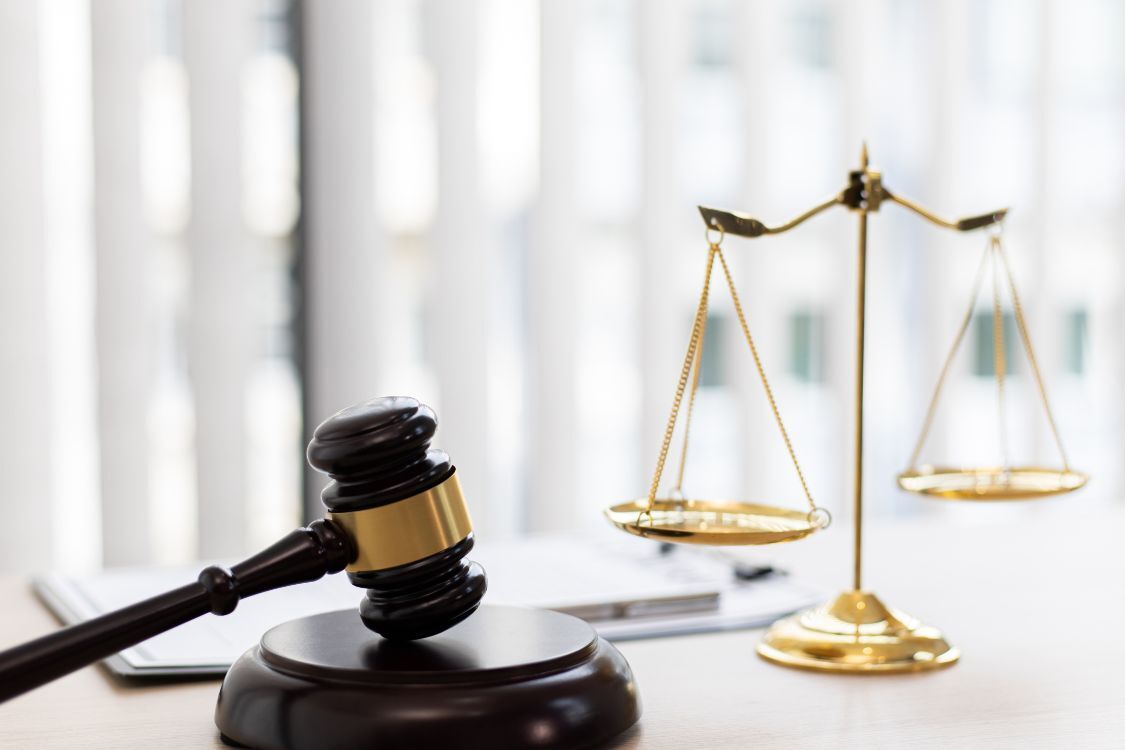Narcissistic abuse is a form of emotional and psychological manipulation that can leave deep, lasting scars, even if there’s no physical evidence. Victims often endure gaslighting, isolation, control, and relentless criticism, which can be difficult to explain or prove in a legal context. Unfortunately, these forms of abuse are far more common than many realize. In 2023, over 123,000 Canadians aged 12 and older were victims of police-reported intimate partner violence, a number that has risen by 13% since 2018. Alarmingly, nearly four out of five victims were women and girls, with the highest rates among those aged 12 to 24, according to Statistics Canada.
What You Will Learn in This Guide:
- What qualifies as narcissistic abuse under Canadian law
- The signs and symptoms victims should recognize and document
- How to gather legal evidence – even without physical proof
- Where and how to find lawyers who understand narcissistic abuse cases
- What to expect from the court process and how to prepare
- Legal protections and mental health resources available to Canadians
If you’re considering ending a relationship with a narcissistic partner, be sure to read our guide to divorcing a narcissist to better understand your legal options and how to protect yourself.
Navigating narcissistic abuse through the legal system is challenging, but entirely possible. With the right legal strategy and emotional support, you can move from confusion and fear toward clarity, empowerment, and justice. This guide will walk you through each step.
What is Narcissistic Abuse?
Narcissistic abuse refers to a pattern of emotional, psychological, financial, or even physical mistreatment by someone with narcissistic traits or narcissistic personality disorder (NPD). This abuse often stems from a deep need for control, validation, and dominance, and can escalate from subtle emotional manipulation to overt threats or violence.
Victims of narcissistic abuse are often subjected to deeply damaging tactics designed to confuse, isolate, and break down their self-esteem. These behaviors can be especially difficult to prove in court due to their covert nature , making it critical to understand and document them clearly.
Here are some of the most common tactics narcissistic abusers use to control their victims:
Gaslighting
Gaslighting is a psychological tactic where the abuser manipulates facts to make you doubt your memory, perception, or sanity. You might hear statements like, “That never happened,” or “You’re imagining things.” Over time, this undermines your confidence and makes you dependent on the abuser’s version of reality.
Emotional Blackmail
This involves using guilt, fear, or obligation to manipulate your decisions. The abuser may threaten to harm themselves, cut off financial support, or tell others false stories if you don’t comply. This form of coercion is often subtle but extremely effective in creating emotional dependency.
Manipulation and Control
Narcissistic individuals often engage in subtle manipulation, like love-bombing (excessive praise or gifts) followed by withdrawal or punishment. They may isolate you from friends and family or micromanage your daily decisions, all to maintain control over your life.
Financial or Physical Domination
Some narcissists use money as a form of power, restricting access to bank accounts, controlling purchases, or using financial threats to ensure obedience. In severe cases, abuse may escalate into physical intimidation or violence.
Signs That You Are A Victim of Narcissistic Abuse
If you’re seeking legal help to address narcissistic abuse, it’s crucial to recognize the warning signs and behaviors that characterize this form of manipulation. Understanding these can help you cut through the confusion and begin to legally document and establish the abuse. Below are some indicators that you may be experiencing narcissistic abuse:

Intense Worry About Abuser’s Reaction
Many people subjected to narcissistic manipulation often share experiences of relentless gaslighting tactics that effectively silence their voices. It’s important to remember that everyone has the right to be noticed, and listened to, and to feel secure in their relationships.
Indecision
Recognizing indecision can be tricky. It’s often an unconscious act, and sometimes friends and family might confuse it for a normal need for solitude. But for those living with an abuser, if you tend to shut down or ‘freeze’ under stress with your abuser, know that this is a common reaction for a victim of narcissistic abuse.
Insistent Mistrust
Regaining trust and confidence in a relationship with an abuser requires external support, a diagnosis, and the abuser’s willingness to comply with treatment. If you’re constantly tiptoeing around to avoid conflict, devaluing yourself in the process, it may be time to seek out a lawyer who can support and guide you through every stage of the journey ahead.
Additional Signs to Consider
- Emotional Isolation: Feeling distant from friends and family because the abuser monopolizes your time and attention.
- Chronic Self-Doubt: Constantly questioning your worth or sanity due to the abuser’s manipulation.
- Physical Symptoms: Experiencing unexplained physical symptoms like headaches or stomachaches due to stress.
- Financial Control: The abuser may restrict your access to money or resources as a means of control.
Self-Check: Are You Experiencing Narcissistic Abuse?
This short quiz isn’t a diagnosis, but it may help you reflect on your situation and decide whether to seek professional or legal support.
Legal Protections Against Abuse in Canada
While the Criminal Code of Canada does not explicitly refer to “narcissistic abuse,” many of the actions associated with this type of harm – such as manipulation, threats, harassment, and coercion, are punishable under existing criminal law.
Some of the most commonly applied charges in such cases include:
- Criminal harassment (Section 264): repeated stalking, threats, or unwanted communication
- Assault (Section 265): including threats or physical intimidation
- Uttering threats (Section 264.1): verbal or written threats to cause harm
The law also provides protection mechanisms for victims, particularly in family violence situations. These include emergency protective orders and court-mandated conditions such as “no contact” or “non-communication” orders, which remain in place through trial and appeal proceedings.
Criminal courts have broad discretion to detain or release the accused depending on the risks posed. These legal tools exist to prevent continued harm and ensure safety – especially when the abuse is emotional or psychological and difficult to document.
To learn more about the laws that may apply in your case, you can consult the Criminal Code of Canada on the Department of Justice website.
Understanding your legal options is key, but it’s only the beginning. The next step is knowing how to collect evidence, work with the right lawyer, and take action.

How To Seek Legal Help for Narcissistic Abuse
Collecting evidence is essential when it comes to substantiating claims of narcissistic abuse. Even if physical proof is scarce, recording episodes of abuse can be influential. The following advice will assist you in getting ready to pursue legal help for narcissistic abuse:
1. Keep a Record of the Abuse
Maintaining a detailed log of abuse incidents is crucial, noting when they occurred and the specific events. Compile evidence such as emails, texts, and social media interactions. Make sure to record any physical harm, like bruises or injuries. You should also highlight instances of manipulation, gaslighting, and exertion of control. This documented proof can serve as a vital asset in the legalities to demonstrate the reality of the abuse.
2. Gather Witnesses
If others have seen the abuse occur, encourage them to make a statement. Witnesses might be relatives, friends, or colleagues. Their accounts can reinforce your evidence and solidify your legal case.
3. Look For A Professional Counselor
If you’re enduring narcissistic abuse, it’s important to consult a therapist or counselor. These professionals can offer a diagnosis and record your experiences formally. Such records can be presented in court as supporting evidence for your case.
4. Hire An Lawyer
Securing an lawyer with experience in narcissistic abuse cases is critical. They can adeptly represent your situation in court. This lawyer will aid in collecting evidence, preparing you for court appearances, and advocating on your behalf before a judge.
Looking to hire a family lawyer in Toronto? Get in touch today.
5. Prepare For The Court Process
Demonstrating the reality of narcissistic abuse in court can be tough, yet it’s vital to remain resilient. You might have to confront the narcissist during a trial and present proof of their misconduct. Preparing yourself both mentally and emotionally for this ordeal is crucial.
6. Look for Legal Support Resources
When involved with a narcissist, seeking outside support is key for gaining clarity, restoring self-esteem, and enhancing your ability to communicate and establish boundaries. Legal resources available in Canada can provide significant assistance in these areas.
Common Challenges in Narcissistic Abuse Cases

Even with growing awareness around narcissistic abuse, many victims face significant legal and emotional hurdles when trying to take action. Leaving a narcissist can be a complex and overwhelming process, both emotionally and legally. Understanding these challenges can help you prepare more effectively and avoid common pitfalls in the legal process.
Why Emotional Abuse Is Hard to Prove
Unlike physical abuse, which may leave visible injuries or medical records, emotional abuse often takes place behind closed doors and leaves no tangible evidence. Victims are frequently told they’re “too sensitive” or “overreacting,” making it difficult to establish credibility in court without a clear pattern of documented behavior.
What you can do: Keep a written log of incidents, gather digital evidence like emails or texts, and seek out professional counseling to create a documented trail.
When the Abuser Is Charismatic or Well-Liked
Narcissistic individuals can often present as charming, generous, or highly respected in public settings. This can create a distorted perception among friends, family, and even legal professionals, leading to victim-blaming or disbelief.
What you can do: Focus on gathering objective evidence and eyewitness accounts. Third-party validation from counselors, coworkers, or teachers (in custody cases) can also help dismantle the abuser’s public persona.
Fear of Retaliation or Escalation
Many victims hesitate to take legal action because they fear the situation will escalate – emotionally, financially, or even physically. In high-conflict separations, narcissists may retaliate by dragging out court proceedings, making false claims, or manipulating shared children.
What you can do: Work with a lawyer experienced in narcissistic abuse who can set firm boundaries, seek protective orders, and help minimize direct confrontation with the abuser.
Custody and Co-Parenting Complications
In divorce and custody cases, narcissistic individuals may weaponize the legal system or children to maintain control. They might push for shared custody just to continue manipulation or attempt to undermine your credibility as a parent.
What you can do: Document all communication, use court-monitored messaging apps when possible, and consult legal professionals who understand how personality disorders impact co-parenting dynamics.
How To Find Lawyers Who Specialise In Narcissistic Abuse

When finding legal help for narcissistic abuse, it’s crucial to find a lawyer who comprehends the complexities of such abuse. While most lawyers are equipped to handle high-conflict situations, here are a few things to consider when looking for a lawyer:
Understand Their Legal Style
Choose a lawyer who values strategy and assertiveness and prioritizes factual and legal integrity rather than hostility. A competent lawyer will work with you to develop an adaptable strategy, skillfully handle unexpected issues, and counter false claims.
Ensure they understand personality disorders and can guide you to informative resources, potentially reducing costs. Steer clear of ‘shark’ lawyers who might escalate disputes unnecessarily.
Prioritize Legal Knowledge
After completing your research, select your top three choices and arrange consultations. Many lawyer’s offer an initial meeting at no cost. Take note of the courtesy and helpfulness of the person answering your call. Upon visiting the office, consider its accessibility and whether the environment makes you feel at ease.
Check Reviews
Before hiring a lawyer, solicit references and research their reviews on legal websites. Consult with local community members for personal experiences and feedback. Trust your instincts; familiarity with bad behavior from past relationships may cause you to overlook red flags. If you feel uneasy or distressed after meeting a lawyer, regardless of their reputation or cost, it’s advisable not to engage their services.
Assess Fee And Costs
It’s critical to outline a financial plan that aligns with your resources. Assess both flat-rate and hourly billing to see what suits your situation best. Generally, lawyers charge by the hour, and these rates can differ depending on their experience and geographic location. While you may be tempted by a lower rate, a pricier, yet more experienced lawyer could manage your case more efficiently.
Importantly, securing a lawyer who can settle out of court can save you a considerable sum, as courtroom proceedings tend to inflate expenses. Each case will carry its own set of costs, varying with its specific circumstances.
Key TakeawaysHere are the key actions to take if you’re facing narcissistic abuse, guiding you towards legal support and personal empowerment. ▪ Narcissistic abuse is a serious, yet often hidden form of mistreatment that requires careful legal navigation. |
Need Legal Help Navigating Narcissistic Abuse? We’re Here to Support You
At Nussbaum Law, we help clients across Ontario who are facing high-conflict separation, emotional abuse, and controlling behavior from narcissistic partners. Our experienced family lawyers understand the nuances of these cases and are committed to protecting your rights with discretion and care.
Schedule a confidential consultation today to take the first step toward peace of mind and legal clarity.
FAQs About Narcissistic Abuse and the Law
Can I sue someone for narcissistic abuse in Canada?
While “narcissistic abuse” isn’t a specific legal term, many behaviors involved can fall under criminal or family law, such as coercive control or emotional abuse. A lawyer can help you explore viable legal pathways.
How can I prove narcissistic abuse in court?
Start by documenting every incident with dates, messages, and any physical evidence. Testimony from a mental health professional or people who’ve witnessed the abuse can strengthen your case.
What legal protections exist in Canada for emotional abuse victims?
The Criminal Code provides for restraining orders and “no contact” conditions and includes several offenses that can cover forms of emotional and psychological abuse. Visit the Department of Justice Canada for more information.
Do I need a lawyer who specializes in narcissism?
It helps to work with a lawyer familiar with high-conflict personalities and emotional manipulation. While not an official legal specialty, experience in these cases can make a real difference.
What should I expect emotionally during the legal process?
Pursuing legal action against a narcissist can be intense and emotionally taxing. Having a support team that includes legal counsel, mental health professionals, and trusted loved ones is crucial.











